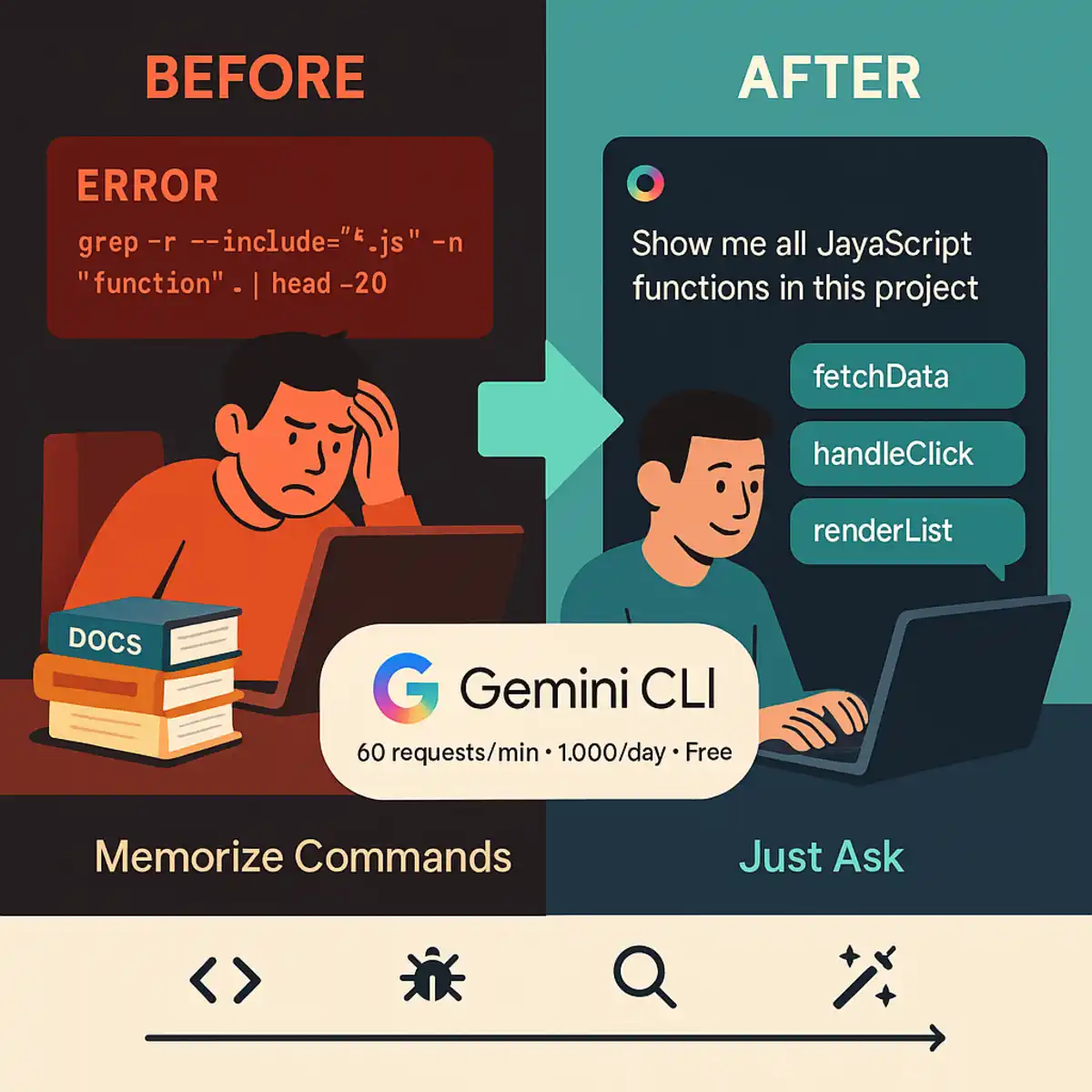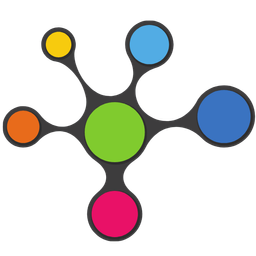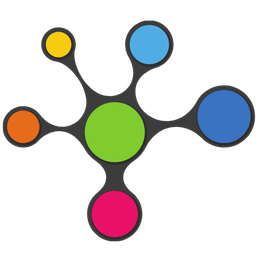💡 TL;DR - The 30 Seconds Version
🤖 Google launched Gemini CLI, letting developers control computers with plain English instead of cryptic terminal commands.
📊 Free users get 60 requests per minute and 1,000 daily requests—double what most developers need according to Google.
🔓 The tool is open source under Apache 2.0 license and connects to Gemini 2.5 Pro's 1 million token context window.
⚔️ This puts Google in direct competition with OpenAI's Codex CLI and Anthropic's Claude Code for developer mindshare.
🎯 Google wants direct relationships with developers instead of watching them use Gemini through third-party tools like Cursor.
🚀 Natural language interfaces could replace traditional command syntax, making programming accessible to more people.
Google just gave developers something they didn't know they needed: an AI that speaks human.
The company launched Gemini CLI this week, an open-source tool that lets developers talk to their computers like they would a colleague. Instead of memorizing cryptic terminal commands, you can simply tell your machine what you want. Need to debug that messy code? Ask it. Want to run a complex sequence of file operations? Just explain what you're after.
The tool connects Google's Gemini 2.5 Pro model directly to your terminal. It reads your entire project, understands your coding patterns, and generates code that fits your specific setup. No more generic boilerplate that needs heavy editing.
Death of the cryptic command
Terminal commands have always been a developer's necessary evil. One typo kills the whole operation. Remembering hundreds of obscure flags and parameters feels like memorizing ancient spells. Gemini CLI changes that dynamic completely.
"Computers have required users to adapt to how computers work, now computers will adapt to them," says Taylor Mullen, Google's senior staff software engineer behind the project.
The AI agent handles file manipulation, command execution, and dynamic troubleshooting. It grounds prompts with Google Search to fetch real-time context. When something breaks, it figures out what went wrong and fixes it automatically.
Beyond coding
Google built Gemini CLI for more than just programming tasks. Developers can use it to generate videos with the company's Veo 3 model, create research reports, or access live information through Google Search. The tool connects to external databases through MCP servers.
The system reads GEMINI.md files that contain custom instructions. Teams can set project standards, point it toward favorite codebases, and add personal preferences. Each setup becomes unique to the developer or organization using it.
Free and generous
Google offers the most generous usage limits in the industry: 60 model requests per minute and 1,000 requests per day at no cost. The company says this covers roughly double what most developers typically need.
Free users get access to Gemini 2.5 Pro with its massive one million token context window. Professional developers who need multiple agents running simultaneously can upgrade to paid plans through Google AI Studio or Vertex AI.
The tool ships under Apache 2.0 license, one of the most permissive open-source licenses available. Google expects developers to contribute bug reports, security improvements, and new features through GitHub.

Fighting for developer mindshare
This launch puts Google in direct competition with OpenAI's Codex CLI and Anthropic's Claude Code. Command-line AI tools have become popular because they integrate faster and run more efficiently than traditional IDE-based assistants.
Google's timing makes sense. Since launching Gemini 2.5 Pro in April, developers have flocked to the model through third-party tools like Cursor and GitHub Copilot. Now Google wants to build direct relationships with these users instead of watching them access Gemini through other companies' products.
The strategy mirrors what happened with search. Google provides the underlying technology but loses control over the user experience when others build the interface.
Shared technology
Gemini CLI shares its core technology with Gemini Code Assist, Google's IDE-focused coding assistant. Code Assist now includes an agent mode that handles multi-step tasks like adding dark mode support or building entire features from scratch.
The agent builds execution plans, recovers from failed attempts, and suggests solutions developers might not consider. Both tools use the same underlying system but target different workflows.
Trust issues remain
AI coding tools face skepticism from developers. A 2024 Stack Overflow survey found only 43% of developers trust AI tool accuracy. Studies show code-generating models sometimes introduce errors or miss security vulnerabilities.
Google addresses this by making everything open source. Developers can inspect the code, understand how it works, and verify security implications. The transparency should help build trust over time.
The company also emphasizes human oversight. Gemini CLI suggests and executes, but developers maintain control over what actually happens to their code.
Why this matters: • Google is betting that natural language interfaces will replace traditional command-line syntax, making programming accessible to more people • The battle for developer tools has shifted from features to fundamental interfaces—whoever controls how developers interact with their computers wins the next generation of software creation
❓ Frequently Asked Questions
Q: What operating systems does Gemini CLI support?
A: Gemini CLI works on Windows, macOS, and Linux. It runs in any terminal that supports standard command-line tools. Installation takes less than a minute according to Google's documentation.
Q: How does the 1 million token context window help with coding?
A: It can read and understand entire large codebases at once. Most coding AI tools only see small code snippets. Gemini CLI analyzes your full project structure, dependencies, and coding patterns to generate more accurate, project-specific code.
Q: What happens when I hit the 1,000 daily request limit?
A: You'll need to wait until the next day for free usage to reset, or upgrade to a paid plan through Google AI Studio or Vertex AI. Google says the free limits cover double what most developers typically use.
Q: Can Gemini CLI access my private files and data?
A: Only files you explicitly share with it. Gemini CLI runs locally on your machine and only sends code to Google's servers when you make a request. You control what data it sees and processes.
Q: How does this compare to GitHub Copilot or Cursor?
A: Gemini CLI works in the terminal instead of requiring an IDE. It offers higher free usage limits than most competitors and can handle non-coding tasks like generating videos or research reports through Google's other AI models.
Q: What programming languages does it support?
A: All major programming languages including Python, JavaScript, Java, C++, Go, Rust, and more. Since it's built on Gemini 2.5 Pro, it understands the syntax and conventions of virtually any programming language or framework.
Q: Do I need to be online to use Gemini CLI?
A: Yes, Gemini CLI requires an internet connection. It processes requests through Google's cloud servers rather than running AI models locally on your machine. This keeps the tool lightweight and fast.












